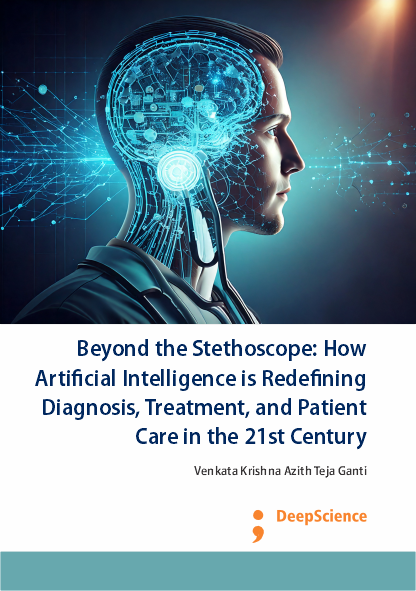The ethical implications of artificial intelligence in healthcare: Balancing innovation with responsibility
Synopsis
In recent years, and particularly since the COVID-19 pandemic, AI has become more present in almost any section of the economic life of many countries. In healthcare, AI algorithms have been presented for diagnosis, triage, prognosis, and therapy of a wide range of diseases. These algorithms have also been offered to carry out complicated healthcare procedures that otherwise were reserved for healthcare providers. Furthermore, there is an increasing trend of consumers who acquire wearable devices that monitor vital signs and other health-related data. Concomitantly, regulation on intelligent technologies is lagging behind its fast-developing reality, at least in some countries. Despite the extraordinary possibilities of converging AI with distributed healthcare, the current state of affairs has left room for speculation on how to avoid that AI undermines the trustworthiness of healthcare. This is even more cogent if we reflect on how techno-health companies might favour the development of AI at the expense of communication and action by healthcare experts.
These developments persuade a staged deployment of AI in healthcare, focusing here on the European setting. “Protection and resilience” would pave the way for the expansion of AI in those healthcare areas where its principles are deeply respected. A storm of interventions would then lead to a new healthcare normal.
AI would be integrated into ‘primary-live’ tools for health workers, creating sophisticated, caring assemblages of humans and machines. First-hand technical knowledge would remain firmly in the hands of health workers and in the custody of systems constantly reviewed by healthcare authorities. Ever-shifting innovations in intelligent tech would be time-envisaged and consistently transmitted pending ethical fulfilment. In this trustworthy environment, health workers would multiply their grasp of reality, hence boosting their readiness to grasp complexity. On the patient’s side, the uptake of technology would prioritise ‘improvements in interaction’.The staged deployment of AI in healthcare, particularly in Europe, hinges on creating a framework of "protection and resilience" that ensures AI is integrated responsibly into healthcare practices. By focusing on areas where ethical principles are deeply ingrained, AI can be gradually expanded to enhance the quality of care. This would lead to a new healthcare normal, where advanced AI tools are embedded into daily workflows for health professionals, creating a seamless synergy between humans and machines. Crucially, health workers would retain control over technical knowledge, with systems subject to constant oversight by healthcare authorities. As AI evolves, innovations would be introduced gradually, ensuring ethical standards are met before full integration. In this environment of trust, healthcare professionals would become more adept at navigating complexity, enhancing their ability to manage patient care. For patients, the emphasis would shift toward improving the quality of interactions, making technology an enabler of more personalized and empathetic care.












